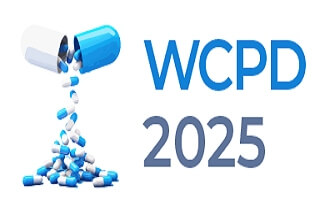2nd World Congress on
Pharmaceutical Chemistry and Drug Development
October 09-10, 2025 | Online
WCPD 2025

Charter University, Pakistan
Abstract:
Nano medicine has emerged as a promising field for the targeted treatment of various chronic diseases, including cancer, cardio-vascular diseases, and neurological disorders. In this context, the design and development of Nano robots capable of precise therapeutic interventions at the Nano scale hold significant potential. Here, we propose a novel approach using graphene-based nanomaterial’s for the construction of thermo-responsive Nano robots for chronic disease treatment. Graphene's unique properties, including high surface area, thermal conductivity, and bio-compatibility, make it an excellent candidate for such applications. The Nano robot design incorporates graphene oxide (GO) or reduced graphene oxide (rGO) as the main component, functionalized with thermally responsive polymers or drug-loaded nanoparticles. These Nano robots are remotely activated using external stimuli, such as near-infrared (NIR) light, to induce hyperthermia at targeted disease sites. This localized heating effect facilitates various therapeutic modalities, including drug delivery, photo thermal therapy (PTT), and photodynamic therapy (PDT). In this study we will design a model of “Thermal Distribution Control System” which will work as heat therapy for the treatment of the fatal disease of cancer on the bases of graphene material by controlling the intensity of heat at the range of 38 C0 to 45 C0 for the treatment of cancer by using the magical properties of coated graphene Nano-particles and evaluate the thermo Phoresis Nt. An infrared thermal camera are utilized to measure the thermal conductivity and monitor the temperature change of the composites, respectively. Furthermore, the Nano robots can be engi-neered to respond to specific biomarkers or physiological conditions, enabling precise targeting and controlled release of therapeutic payloads. This review discusses recent ad-vancements in the design, fabrication, and applications of graphene-based Nano thermo robots, highlighting their potential for the treatment of chronic diseases and the chal-lenges that need to be addressed for clinical translation. Inclusive, graphene-based Nano thermo robots represent a promising avenue for next-generation Nano medicine, offering tailored and efficient therapeutic strategies for chronic disease management.
Biography:
Dr. Zahid Hasan has completed his PhD at the age of 45 years from NCBA&E. He is the HOD for graduate program of computer science department of Charter University NCBA&E He has published more than 16 papers in reputed journals and has been serving as an assistant professor in repute institute of Pakistan.
